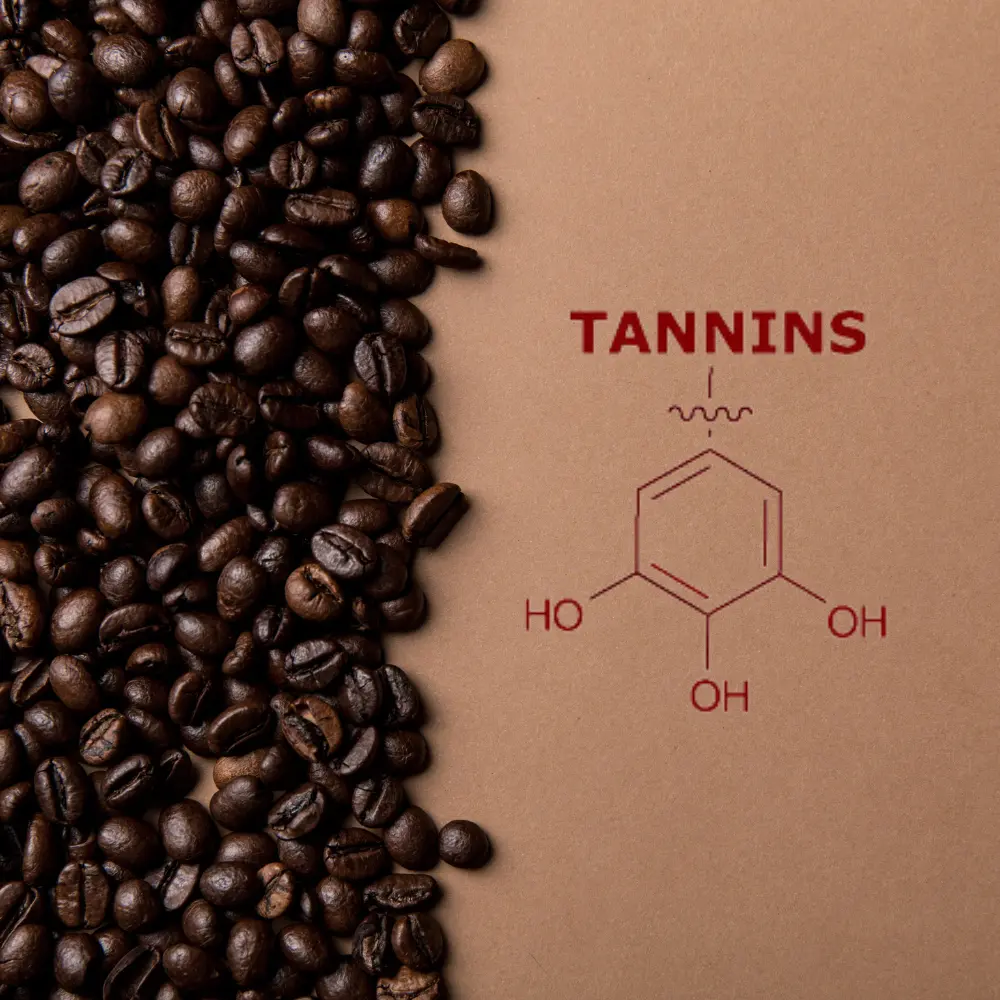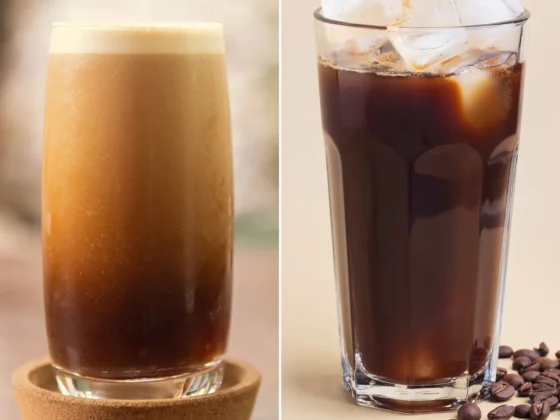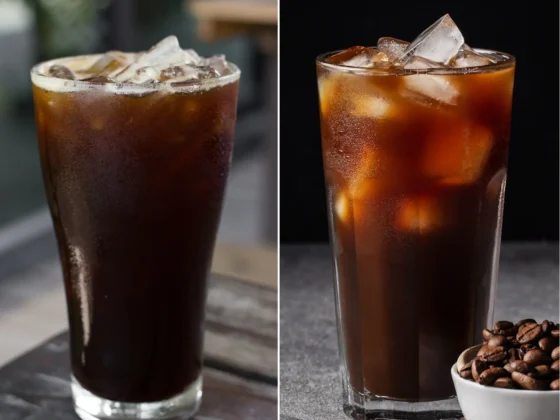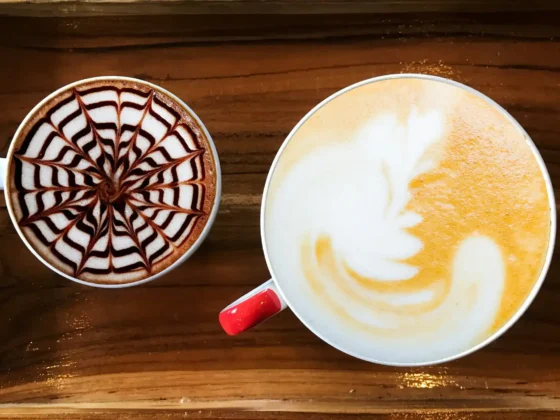As dawn breaks and the aroma wafts through kitchens worldwide, millions of individuals reach out to their beverage of choice – some, the comforting, aromatic infusion of black tea, and others, the robust, invigorating jolt of coffee. Yes, the rivalry between tea and coffee is as old as the beverages themselves, inspiring countless debates, studies, and tastings to determine a champion. However, the Black Tea vs Coffee showdown often boils down to personal preference, shaped by factors like taste, caffeine content, culture, and health benefits.
Black tea, steeped in rich history and cultural traditions, has a loyal following who swear by its nuanced flavors and calming effects. On the other hand, coffee, known for its stimulating kick of caffeine, has been the favorite companion of artists, intellectuals, and anyone needing a wake-up call. But beyond the general buzz, what really differentiates these two popular beverages?
In this comprehensive guide, we will delve into the captivating world of black tea and coffee, exploring their origins, health benefits, caffeine content, taste profiles, and brewing methods. So whether you’re a seasoned tea connoisseur, a coffee enthusiast, or a curious newcomer in the world of beverages, this exploration will enrich your understanding and perhaps even influence your next drink choice. So, shall we embark on this flavorful journey?
Coffee vs Black Tea: Key Takeaway
- Historical and Cultural Significance: Both black tea and coffee have deep historical roots and play significant roles in various cultures worldwide. Their global spread has impacted trade, social practices, and even political movements.
- Health Benefits and Risks: Black tea and coffee both offer numerous health benefits, including antioxidants and potential heart health and cognitive benefits. However, they also have associated health risks, particularly when consumed excessively, such as potential heart issues and sleep disturbances.
- Caffeine Content: Coffee generally contains a higher caffeine content than black tea, contributing to its stronger, more robust flavor and more intense stimulating effect. However, the caffeine in black tea provides a gentler, less jolting energy boost.
- Flavor Profiles: The taste of both black tea and coffee can be incredibly diverse, influenced by factors such as the type of tea or coffee, the region it comes from, and the brewing method. The choice between the two often comes down to personal taste preference.
- Brewing Techniques: The brewing process significantly impacts the taste and overall experience of both black tea and coffee. Perfecting the art of brewing involves understanding the correct water temperature, brewing time, and the right quantity of tea leaves or coffee beans.
Unveiling the History and Cultural Significance
The intriguing tale of black tea vs coffee isn’t complete without understanding the rich history and cultural significance of these beverages. Let’s journey back in time to discover their origins and global spread, which has led to their widespread prominence today.
The Origins of Black Tea: A Historical Perspective
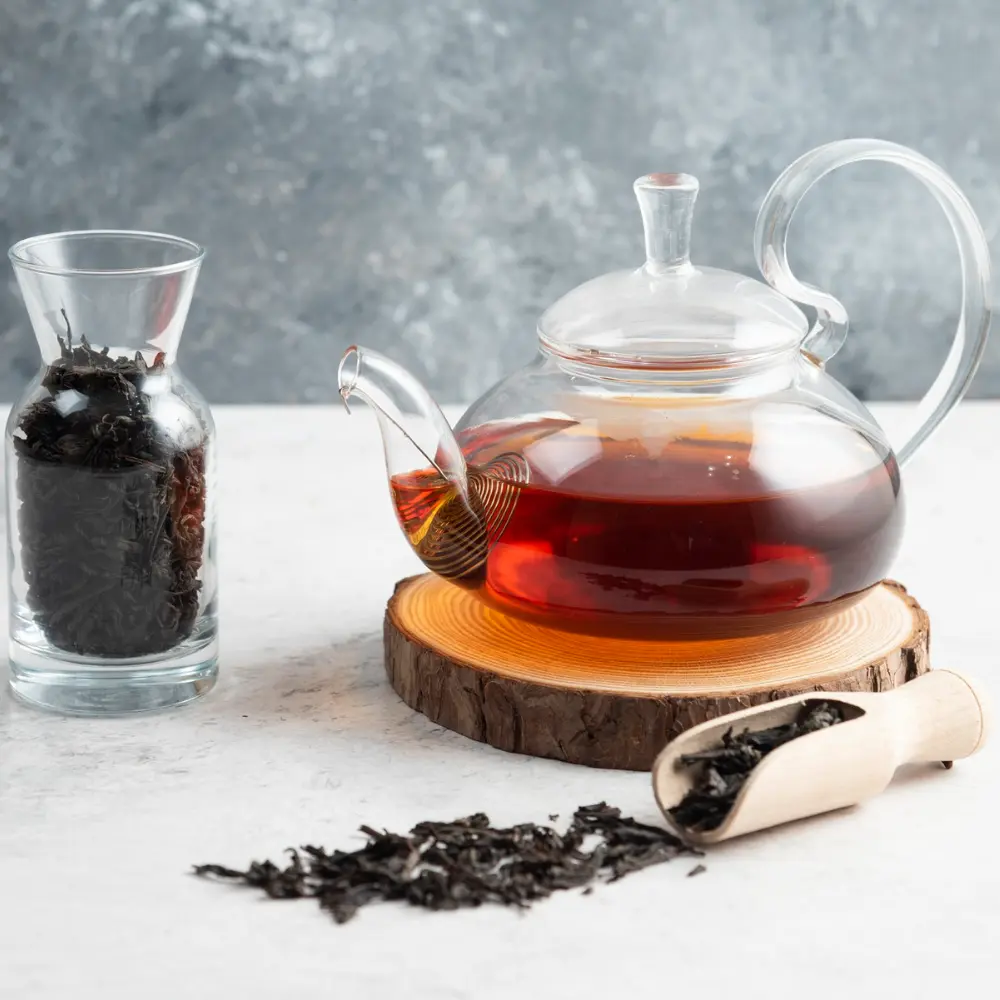
Black tea has a profound history rooted in ancient China, where tea was first discovered around 2737 BCE Legend tells us of Emperor Shennong, a skilled ruler, and herbalist, who by accident found out about tea when leaves from a wild tea tree fell into his pot of boiling water. The resulting infusion was aromatic and refreshing, marking the beginning of the world’s love affair with tea. (1)
Initially, green and white teas were the common varieties, but the concept of black tea, or ‘red tea’ as it is called in China, was introduced during the Ming Dynasty (1368 – 1644). Black tea underwent a full oxidation process, resulting in a richer flavor and darker color. It was favored for its long shelf life, and the taste seemed to improve during long voyages, making it a preferred choice for export to other countries, including Britain, where it quickly gained popularity.
The Birth and Global Spread of Coffee
While black tea has its roots in the East, coffee originates from the opposite end of the ancient world. The discovery of coffee can be traced back to the verdant highlands of Ethiopia in the 9th century. Legend has it that a goat herder named Kaldi noticed his goats acting strangely energetic after eating berries from a certain tree. Intrigued, he shared this with a local monk, who made a drink with the berries and discovered that it kept him awake during long hours of prayer. (2)
Coffee spread quickly in the Islamic world due to its stimulating properties, making it a popular drink for prayer and study. In the 15th century, it reached Yemen and the first coffeehouses, or “qahveh khaneh,” started appearing in cities like Mecca, Cairo, and Istanbul.
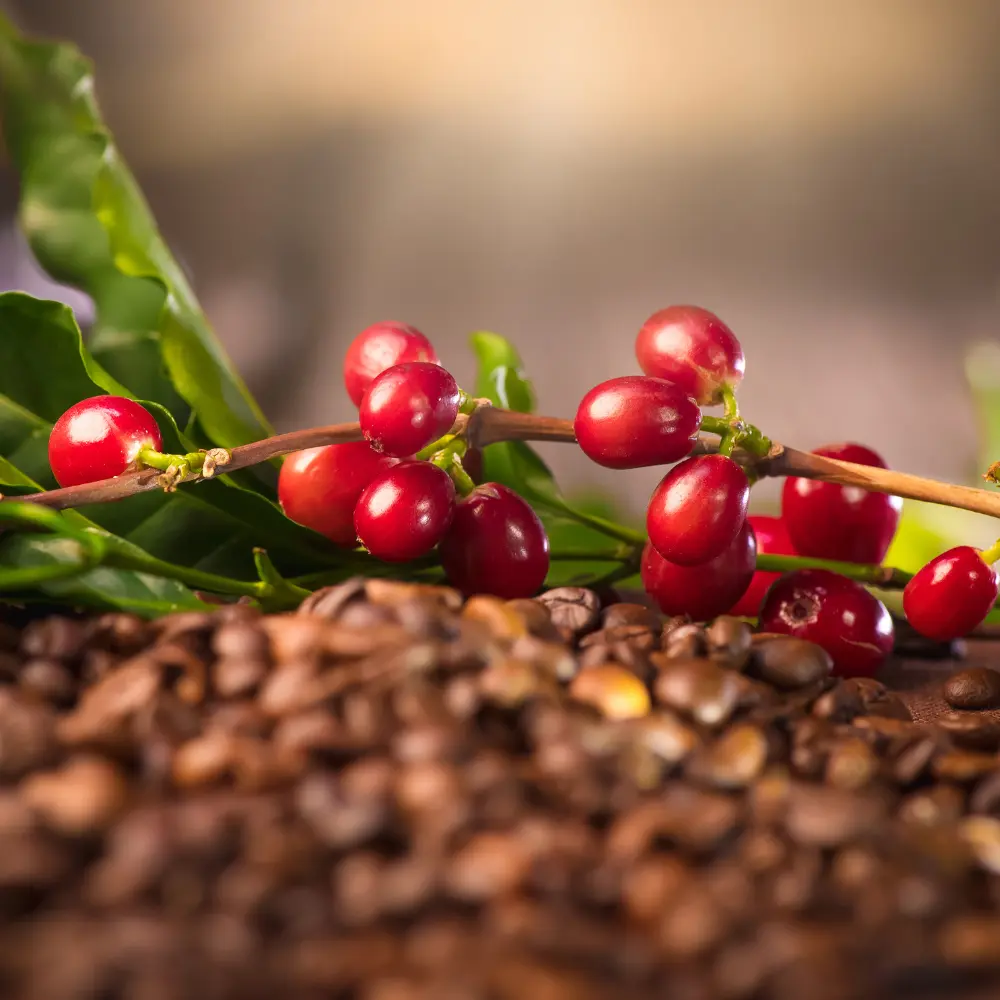
The Dutch were instrumental in coffee’s global spread in the 17th century. They managed to obtain live coffee plants, starting plantations in their colonies, notably Java, now part of Indonesia. By the 18th century, coffee had made its way to Europe and the Americas, where it experienced a popularity surge.
Cultural Significance of Tea and Coffee Across Different Regions
The cultural significance of black tea and coffee varies across different regions. In the East, especially in China and India, black tea plays a crucial role in social rituals and traditional medicine. It’s not just a drink, but a symbol of hospitality and a means of social bonding. The British adopted this tea culture, making ‘afternoon tea’ a quintessentially British tradition.

Coffee, on the other hand, has been more than a morning wake-up call in the Arab world and Turkey, where coffeehouses became centers for social activity, intellectual discussions, and even political debates. In Europe and the Americas, the rise of coffeehouses in the 17th century signaled a shift from alcoholic beverages to coffee during work hours – a shift marking the onset of the Age of Enlightenment.
Today, both tea and coffee are globally loved, shaping, and being shaped by the cultures they touch. The story of black tea vs coffee is a testament to their shared history of bringing people together, their resilience in traversing global boundaries, and their flexibility in adapting to diverse cultural norms.
Health Benefits and Risks: A Comparative Analysis
As we compare black tea and coffee, it’s vital to consider their health implications. Both beverages contain a rich assortment of beneficial compounds, yet they also come with potential risks, especially when consumed excessively. Let’s delve into the health benefits and potential risks linked to these popular beverages.
Health Benefits of Black Tea

Black tea, much like its green and white counterparts, is rich in antioxidants known as polyphenols. These substances are linked to several health benefits:
- Heart Health: Studies suggest that regularly consuming black tea may help reduce the risk of developing heart diseases. It can help regulate cholesterol levels and decrease blood pressure.
- Better Gut Health: The polyphenols in black tea promote a healthy gut by encouraging the growth of good bacteria and inhibiting the growth of bad bacteria such as Salmonella.
- Weight Management: Some research indicates that the polyphenols found in black tea may help reduce body weight and body fat by boosting metabolism and fat oxidation.
- Reduced Risk of Stroke: Several studies link regular consumption of black tea with a lower risk of stroke.
Potential Health Benefits of Coffee
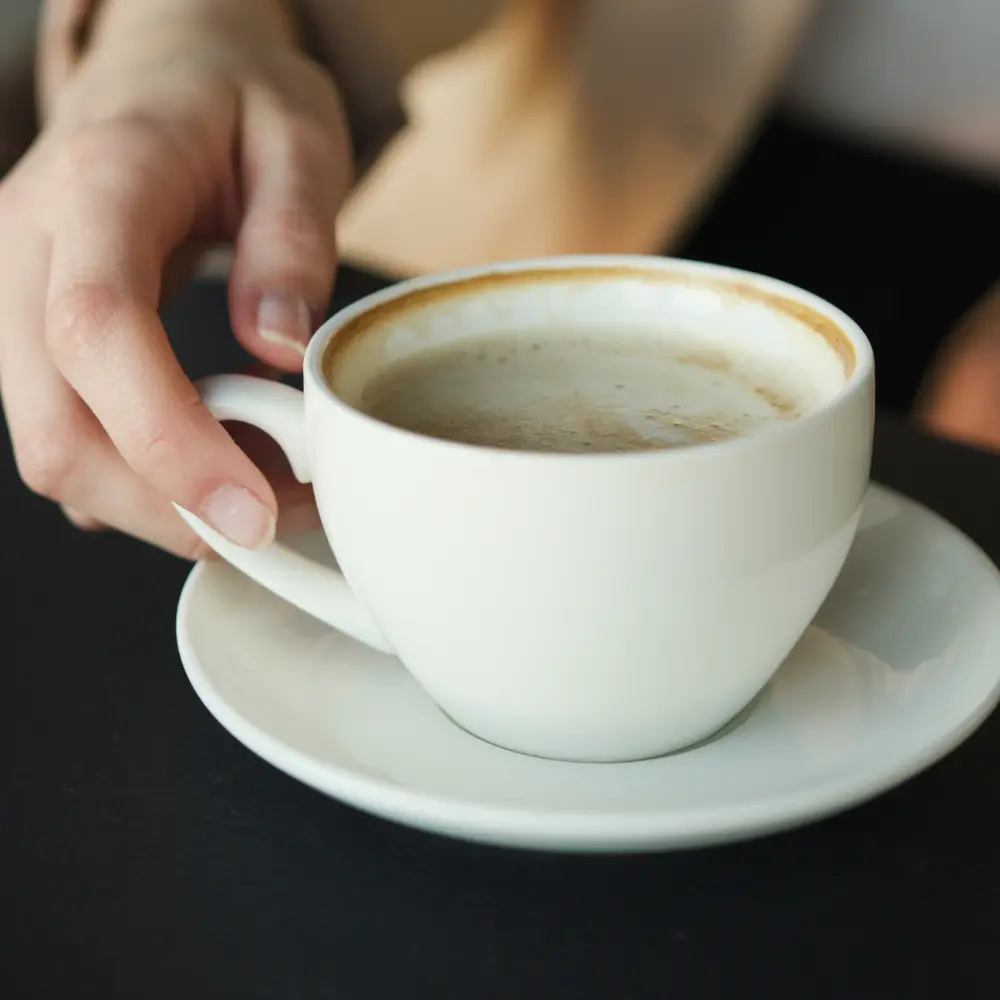
Coffee, adored for its energizing effect, is also packed with health-promoting substances:
- Brain Health: The caffeine in coffee doesn’t just wake you up; it may also protect against neurological diseases. Studies have linked coffee consumption to a reduced risk of developing Alzheimer’s and Parkinson’s disease.
- Liver Protection: Regular, moderate coffee consumption has been associated with a lower risk of liver diseases, including liver cancer and cirrhosis.
- Heart Health: Contrary to popular belief, coffee does not increase the risk of heart disease. In fact, a moderate amount of coffee (3-5 cups a day) may reduce the risk.
- Longevity: Several large-scale studies have linked moderate coffee consumption with a longer lifespan.
Possible Health Risks Associated with Both Beverages

While both black tea and coffee come with their health benefits, it’s essential to consider potential risks.
Black tea contains caffeine, although less than coffee. Excessive intake can lead to headaches, irregular heartbeat, and increased anxiety. Moreover, consuming a lot of black tea might cause digestive issues due to its high tannin content.
Coffee, known for its higher caffeine content, can lead to sleep disturbances, restlessness, and increased heart rate when consumed excessively. Long-term, heavy coffee consumption can also increase the risk of some health conditions, including osteoporosis.
In essence, both black tea and coffee can be enjoyed healthily as part of a balanced diet, but moderation is key. It’s always advisable to consult with healthcare professionals if you have specific concerns about your caffeine intake or the impact of these beverages on your health.
Caffeine Content: A Jolt of Reality

One of the key factors that people consider when choosing between black tea and coffee is the caffeine content. While both beverages contain caffeine, the amount differs significantly, influencing not just the taste and experience, but also the potential impact on health. Let’s examine the caffeine in black tea vs coffee, and what this means for your health.
The Caffeine Content in Black Tea
Black tea generally has lower caffeine content compared to coffee. A standard 8-ounce (240ml) cup of black tea contains around 47mg of caffeine, but factors like tea type, brewing time, and water temperature can cause variations.
It’s important to note that while the caffeine content in black tea is less than coffee, it’s still enough to give you a gentle pick-me-up, making black tea a popular choice for those who prefer a less intense caffeine kick.
Understanding the Caffeine in Coffee
When it comes to coffee, the caffeine content is significantly higher. An average 8-ounce (240-milliliter) cup of coffee can contain 100 milligrams of caffeine, depending on factors like the type of coffee bean, the brewing method, and the length of brewing time. This higher caffeine content is why coffee is renowned for its strong, invigorating effect.
Impact of Caffeine on Health: Tea vs Coffee
Understanding the impact of caffeine on health is crucial when comparing the caffeine in black tea vs coffee. While caffeine can boost alertness and improve cognitive function in the short term, excessive intake can lead to restlessness, insomnia, headaches, and in some cases, irregular heartbeats.
Given the higher caffeine content in coffee, it’s generally more likely to cause these side effects, especially when consumed in large amounts. On the other hand, the lower caffeine content in black tea makes it a gentler choice, providing a more moderate energy boost with less risk of caffeine-related side effects.
However, individual responses to caffeine can vary significantly, and some people might be more sensitive to caffeine than others, irrespective of the source. Therefore, it’s essential to consider your personal tolerance and reaction to caffeine when choosing between black tea and coffee.
Tasting the Difference: Flavor Profiles Explored

Beyond health benefits, caffeine content, and cultural significance, one cannot overlook the aspect of taste when discussing black tea vs coffee. The flavors of both these beverages are complex and can significantly differ based on various factors. Let’s embark on a flavorful exploration to understand the unique taste profiles of black tea and coffee.
Identifying the Taste Profile of Black Tea
Black tea, known for its robust and full-bodied flavor, presents a diverse taste profile that varies widely depending on where it’s grown and how it’s processed. The taste of black tea can range from sweet and floral to malty and astringent. Some common taste notes you might encounter in black tea include:
- Malty: Many Assam teas (from India) have a strong, sweet maltiness reminiscent of toasted bread or grains.
- Fruity: Some black teas, like Darjeeling (also from India), can have a lighter body with notes of muscatel and stone fruit.
- Smoky: Certain black teas like Lapsang Souchong from China are smoke-dried over pinewood fires, giving them a unique, smoky flavor.
However, one common characteristic of black tea is its inherent astringency. The tannins in black tea create a dry, slightly bitter finish that can be quite refreshing.
Unraveling the Complex Flavors of Coffee

Much like tea, the flavor of coffee can be incredibly complex and varied. The taste can change based on the type of coffee bean, where it’s grown, how it’s processed, and how it’s brewed. Here are a few common taste notes you might encounter in coffee:
- Fruity: Some coffees, especially those from African countries like Ethiopia and Kenya, can have bright, fruity notes ranging from berry to citrus.
- Chocolatey: Many coffees, particularly those from Brazil and Colombia, exhibit rich chocolate or nutty notes.
- Earthy: Coffees from regions like Sumatra can have a robust, earthy flavor profile with low acidity.
Unlike black tea, coffee tends to have a stronger, bolder flavor and is often described as having a rich and robust taste. It can be smooth or bitter, depending on the roast level, with dark roasts typically exhibiting more bitterness.
Deciding Which is Better Based on Taste: Tea or Coffee?
The debate of black tea vs coffee ultimately boils down to personal preference when it comes to taste. If you enjoy a beverage with a more robust, bold flavor and don’t mind a bit of bitterness, you might find yourself favoring coffee. However, if you prefer a drink that’s less intense but has a wide array of flavor profiles – from floral to smoky – black tea could be your cup of tea.
Remember, both tea and coffee can be enjoyed in countless ways, with the addition of milk, sugar, spices, or even served iced. The best way to decide which one you prefer is by tasting a variety of each, experimenting with different brew methods, and finding the taste that suits your palate.
Brewing Techniques: From Beans and Leaves to Your Cup
When comparing black tea vs coffee, understanding the different brewing techniques of each is crucial. The brewing process, from the extraction method to the brewing time, significantly influences the taste and experience of the beverage. Let’s delve into the art of brewing the perfect cup of tea and coffee.
The Art of Brewing the Perfect Cup of Black Tea
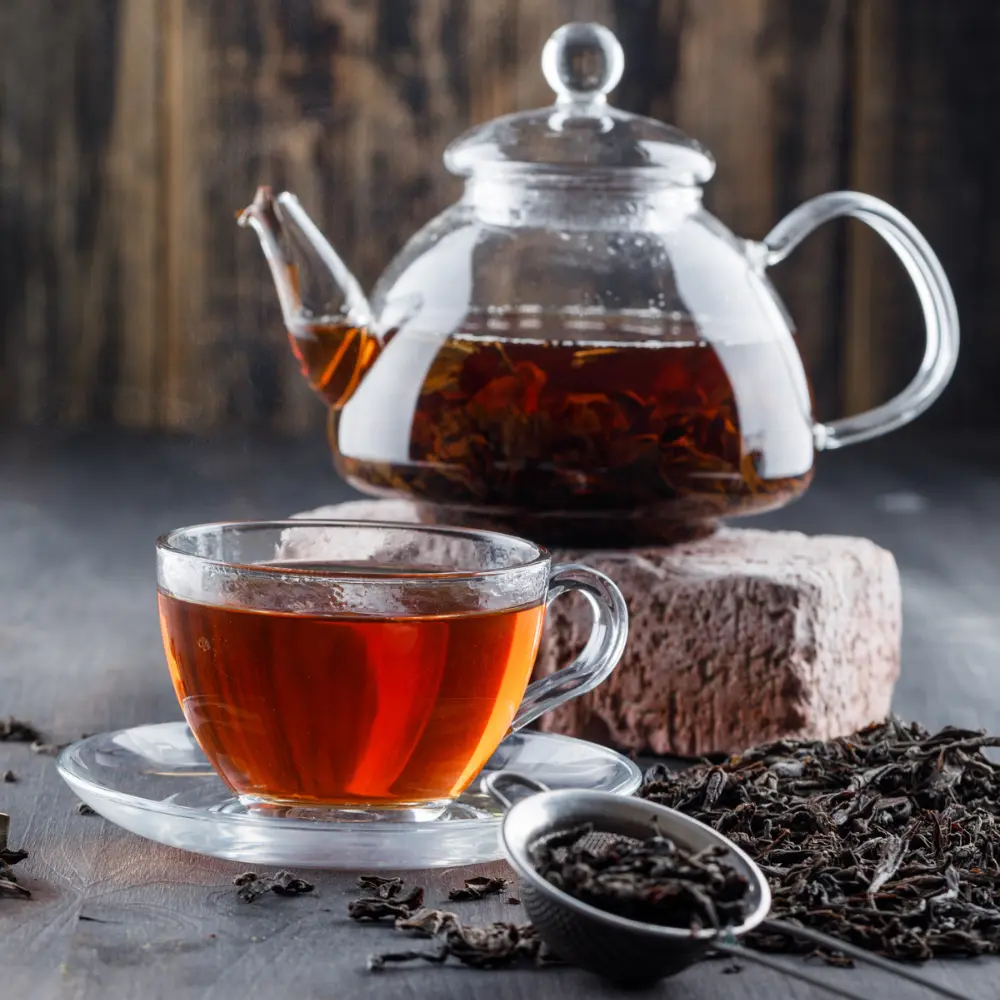
Brewing tea is a delicate process that requires a balance of time, temperature, and tea quantity. Here’s a simple guide on how to brew a flavorful cup of black tea:
- Water Temperature: For black tea, water should be heated to near boiling, typically around 200 to 212 degrees Fahrenheit (93 to 100 degrees Celsius).
- Quantity: Use about one teaspoon of loose-leaf black tea per 8 ounces (240 milliliters) of water.
- Steeping Time: Allow the tea to steep for 3 to 5 minutes. A shorter steep will result in a lighter, more aromatic tea, while a longer steep will give a stronger, more astringent brew.
- Straining: After steeping, strain the leaves from the tea before drinking.
Remember, the quality of the tea leaves can greatly impact the taste. Opt for high-quality, whole-leaf tea when possible for the best flavor.
No products found.
Techniques to Brew the Ideal Cup of Coffee
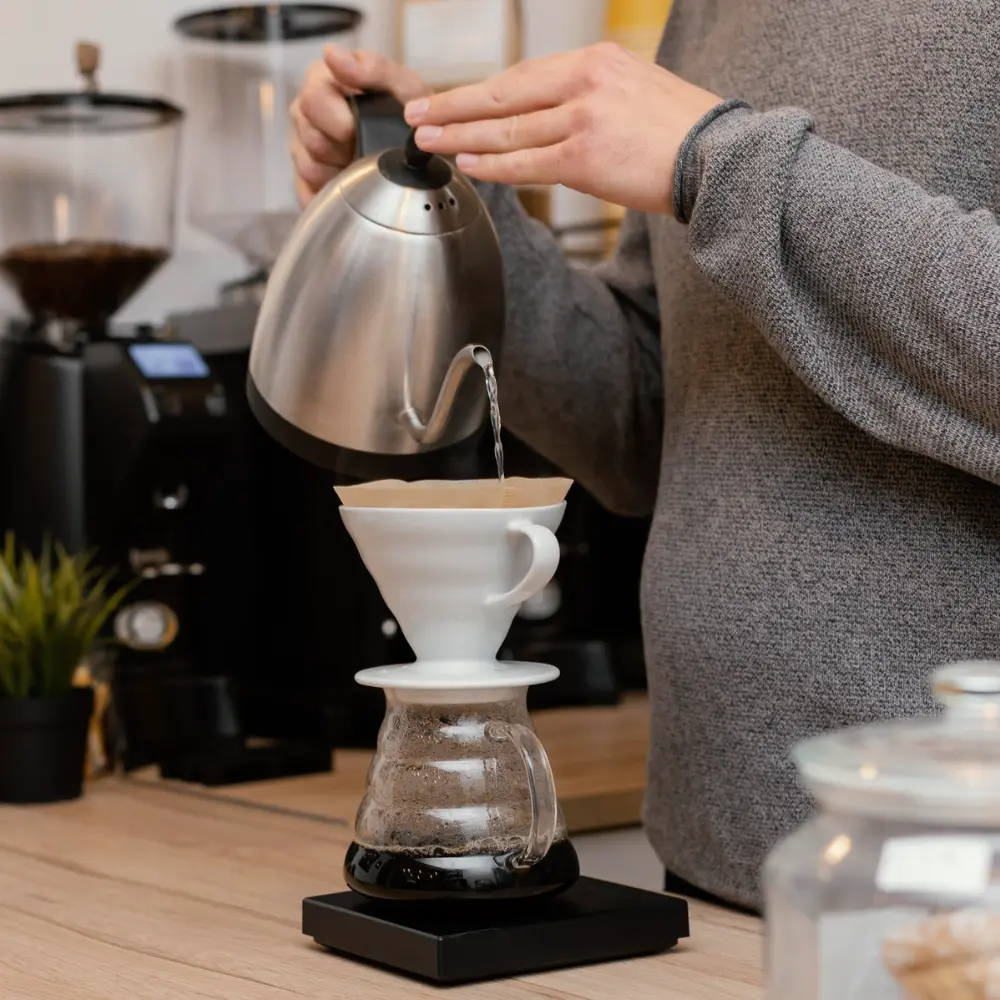
Brewing coffee is a more complex process with several brewing methods available. Here’s a simple guide for a basic drip coffee brewing method:
- Grind Size: For drip coffee, the beans should be ground to a medium coarseness, similar to the texture of sea salt.
- Coffee-to-Water Ratio: A good coffee-to-water ratio starting point is to use 1 to 2 tablespoons of coffee grounds for every six ounces of water, adjusting to taste.
- Water Temperature: The water should be heated to between 195 to 205 degrees Fahrenheit (90 to 96 degrees Celsius).
- Brew Time: The total brew time for drip coffee should be between 5 and 6 minutes.
Remember, the quality of the coffee beans greatly influences the taste of your coffee. Choose high-quality, freshly roasted beans for the best flavor.
No products found.
Factors Influencing the Taste: Brewing Tea vs Coffee
Several factors influence the taste when brewing black tea and coffee. For both, the quality of the water used can significantly impact the taste. Soft, filtered water is generally recommended for both tea and coffee brewing.
When comparing brewing black tea vs coffee, remember that each has its unique considerations. For tea, the type, water temperature, and steeping time can all alter the flavor. Over-steeping can result in an overly astringent or bitter brew.
In the case of coffee, the type of coffee, grind size, water temperature, brewing method, and brew time are all crucial factors. Under-extraction can lead to a sour, acidic taste, while over-extraction can result in a bitter taste.
Brewing the perfect cup of tea or coffee may take some practice, but with time, you’ll be able to brew a cup that suits your taste preferences perfectly.
Conclusion
From uncovering the fascinating history and cultural significance to dissecting the health benefits, caffeine content, and flavor profiles, we’ve journeyed through the captivating world of coffee vs black tea. These beverages, both deeply rooted in many societies worldwide, offer unique experiences that go beyond their invigorating caffeine kick.
The art of brewing the perfect cup of tea or coffee adds another dimension to the enjoyment of these beverages, revealing the subtleties of their complex flavor profiles. Whether you lean towards the robust, often bitter tones of coffee or prefer the varied, aromatic profiles of black tea, it’s clear both offer delightful journeys for your taste buds.
Ultimately, the choice between black tea and coffee boils down to personal preference – the flavors you love, the caffeine kick you desire, and the experience you seek when sipping your chosen brew. Perhaps, instead of looking for a definitive answer to the black tea vs coffee debate, we can celebrate the diversity these two beverages bring to our cups. Here’s to the joy of discovery and the love of variety in our daily caffeine rituals!
FAQ
How does the caffeine content in black tea compare to coffee?
Coffee typically has a higher caffeine content than black tea, resulting in a more intense stimulating effect.
How do the flavor profiles of black tea and coffee differ?
Black tea offers diverse flavor profiles from sweet and floral to smoky, while coffee ranges from fruity and chocolatey to earthy, with generally a stronger taste.
What are the traditional brewing techniques for black tea and coffee?
Black tea involves brewing with near-boiling water and steeping for 3-5 minutes, while coffee requires a specific grind size, water temperature, and brewing time depending on the method.
How has the cultural significance of black tea and coffee evolved over time?
Both beverages have evolved from essential trade commodities to significant cultural symbols, influencing social practices, rituals, and even political movements worldwide.





